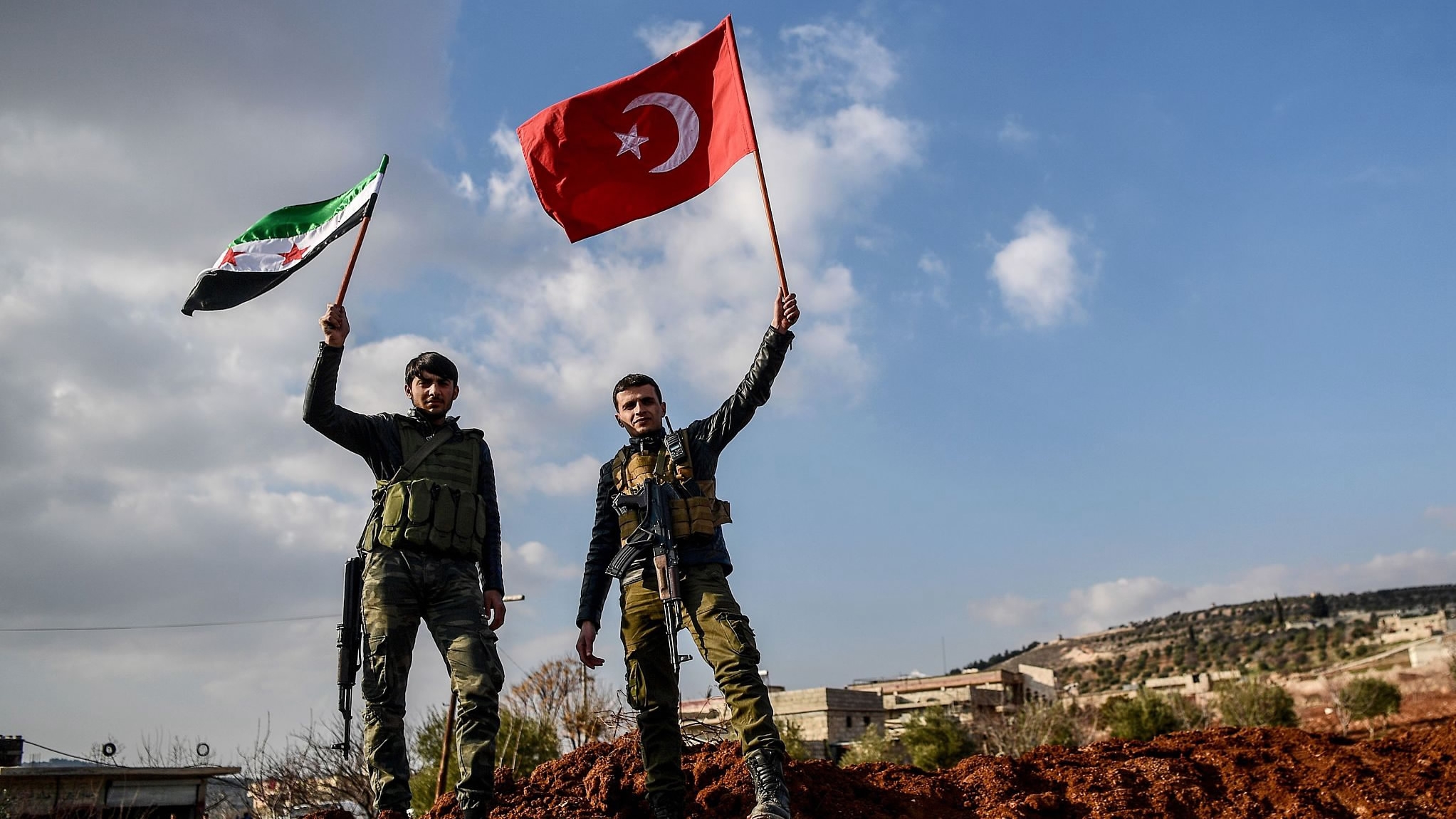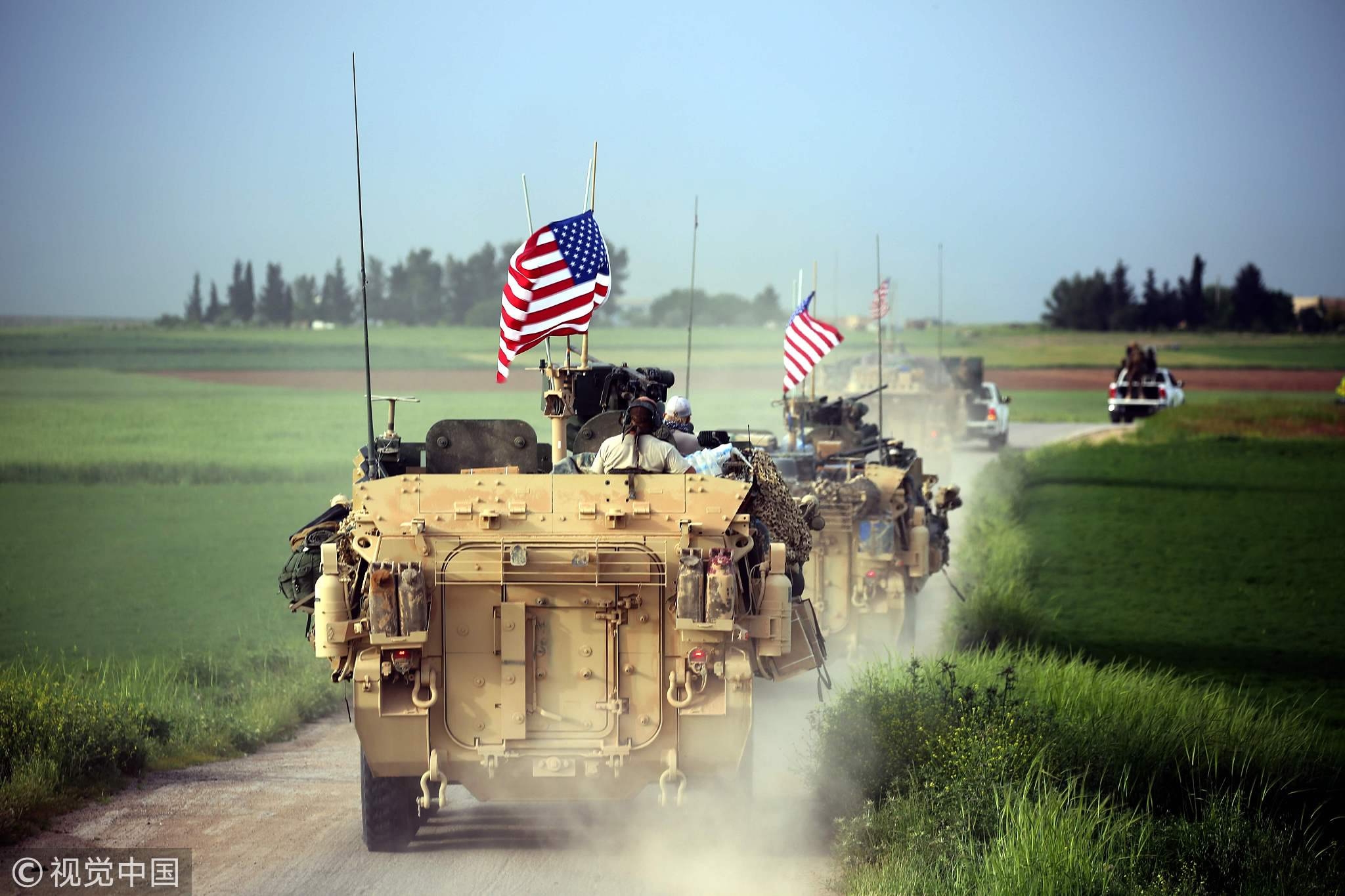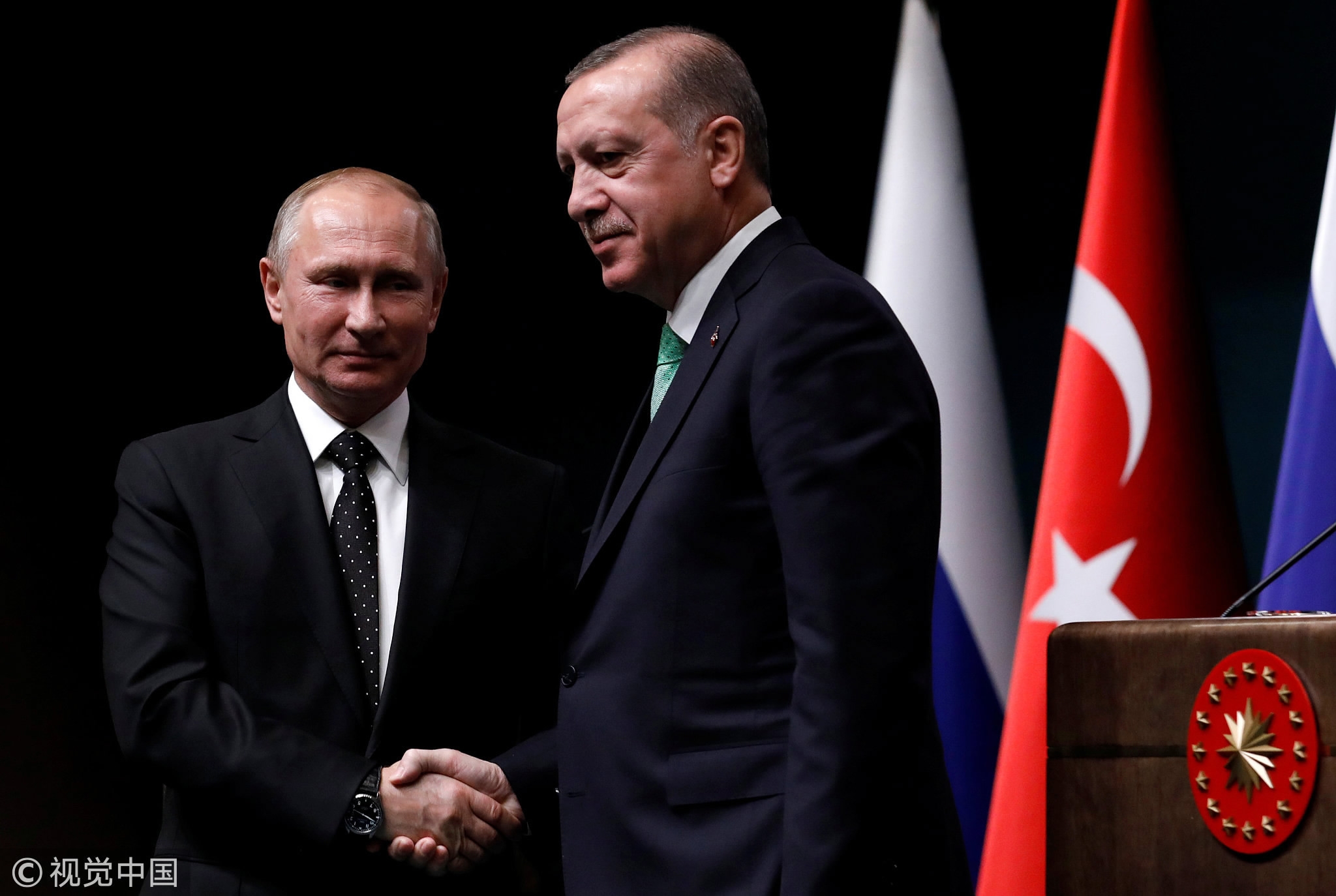
World
16:25, 10-Feb-2018
Experts: Turkey-US rift over Syrian Kurds to widen this year
By Abhishek G Bhaya

The bilateral relationship between Turkey and the US is facing increasing fissures over their respective positions in Syria with experts predicting the rift to widen further this year.
While their divergent views over the US backing of Syrian Kurds had already put ties between the NATO allies under severe strain in recent times, Ankara’s ongoing cross-border offensive in northwestern Syria against what it calls a "terrorist" Kurdish militia has burdened the complicated equation further, according to experts.
The Turkish aerial raids against Syrian Kurdish group People’s Protection Units (YPG) – the armed wing of the Democratic Union Party (PYD) which is an affiliate of Turkey’s outlawed Kurdistan Worker Party (PKK) – in northwestern Syria’s Afrin enclave began on Jan. 20. The YPG is being backed by the US in its fight against the ISIL militants in Syria.
After a brief halt in Ankara’s campaign following Russian closure of the airspace over Afrin, as a result of the downing of a Russian jet in neighboring Idlib province, Turkey resumed its raids in the area on Friday, destroying more than a dozen targets and “neutralizing” at least 34 rebels, Al Jazeera reported citing the Turkish army.
Since the beginning of the operation, an estimated 1,062 YPG and IS fighters have been "neutralized", a term Turkey uses to suggest that the fighters have either been killed, captured or have surrendered, according to state news agency Anadolu.
Growing gap between perceptions

This file photo taken on April 28, 2017 shows US forces, accompanied by Kurdish People's Protection Units (YPG) fighters, driving their armored vehicles near the northern Syrian village of Darbasiyah, on the border with Turkey. /VCG Photo
This file photo taken on April 28, 2017 shows US forces, accompanied by Kurdish People's Protection Units (YPG) fighters, driving their armored vehicles near the northern Syrian village of Darbasiyah, on the border with Turkey. /VCG Photo
“Tensions between Turkey and the United States were bound to escalate as the war against the Islamic State winds down. Ankara is incensed with the extent to which US support has empowered the YPG, even as the PKK, to which the YPG is deeply tied, continues an insurgency inside Turkey,” said Noah Bonsey, senior analyst in the the Middle East and North Africa Program at the International Crisis Group.
“Understandably, Turkey has demanded that its NATO ally end support for its adversary, now that major offensives against the Islamic State have concluded,” Bonsey said.
“Washington, also understandably, has decided not to do that. It recognizes that a precipitous withdrawal could plunge northeast Syria into a new war and leave space for a jihadi resurgence. It also hopes that its continued role on the ground will improve its leverage to push for a political transition in Syria and contain Iranian influence,” she added.
Just four days after Ankara launched the Afrin offensive, US President Donald Trump held a telephonic conversation with his Turkish counterpart, Recep Tayyip Erdogan. The White House released the transcript of the conversation, which asserted that Trump had expressed concern over escalating violence due to Turkey’s Afrin operation and about “destructive and false rhetoric coming from Turkey.”
Turkish officials immediately claimed that the transcript did not reflect the true nature of the conversation.
“This short-lived row over the content of a phone call reflects the current state of US–Turkish relations, which are characterized by disagreements, disputes, and miscommunication,” according to Galip Dalay, research director at the Al-Sharq Forum and a senior associate fellow at the Al-Jazeera Center for Studies.
“During the initial phase of the Arab uprisings, Turkey’s major complaint with regard to the US was related to its inaction toward regime change in Syria. However, in recent years Turkish discontent has been focused on US policy toward the PYD, a Syrian Kurdish party affiliated with the PKK, which Turkey considers a terrorist organization, within the framework of the war against the Islamic State,” he elaborated.
“There is a growing gap between Turkish and American perceptions of threats and the way to deal with them in Syria,” added Dalay.
The Syrian Kurdish group YPG has emerged as Washington’s primary strategic local partner in Syria, both politically and militarily. Turkey is naturally apprehensive about the alliance, more so after a domestic peace process with Kurds collapsed in 2015. Ankara quietly hoped that in a post-ISIL scenario, the relevance of Syrian Kurds to the US may diminish. The recent US decision to create a 30,000-strong border protection force in Syria, with the YPG-dominated Syrian Democratic Forces as its backbone, crushed that expectation.
“Turkey [now] sees US-Syrian Kurdish relations evolving into a more strategic and durable partnership, rather than just being a marriage of convenience. Washington’s open-ended commitment to maintaining a military force in Syria was seen in this light. This led Turkey to explore other options much more vigorously, particularly with Russia,” said Dalay, predicting that friction between Turkey and the US in Syria will worsen in 2018.
Is Russia gaining from US-Turkey rift?

Turkish President Tayyip Erdogan shakes hands with Russian President Vladimir Putin after a news conference in Ankara, Turkey, Dec. 11, 2017. /VCG Photo
Turkish President Tayyip Erdogan shakes hands with Russian President Vladimir Putin after a news conference in Ankara, Turkey, Dec. 11, 2017. /VCG Photo
Turkish-American political scientist Soner Cagaptay, director of the Turkish Research Program at the Washington Institute for Near East Policy, contended that the Afrin operation is born out out a deal between Moscow and Ankara.
“It’s simplistic to cast Turkey’s Afrin operation, taking place west of the Euphrates River in Syria, as opposed to the US. Washington has no ties with the YPG in Afrin or a presence there. Russia has been the protector of the YPG in Afrin, and Turkey’s operation is born out of a deal between Russian President Vladimir Putin and Turkish President Recep Tayyip Erdogan,” he argued.
“The US is only watching it. In 2016, in a similar deal involving the YPG west of the Euphrates, Putin gave Erdogan Jarablus in return for eastern Aleppo. Now, Putin is handing [some parts of] Afrin to Erdogan on a silver platter in return for Erdogan’s acquiescing to future advances in Idlib by the Assad regime, backed by Russia,” he said. “However, the broader issue of US cooperation with the YPG east of the Euphrates will remain a key sticking point in US-Turkish ties.”
Mahir Zeynalov, chief editor of the Washington DC-based Globe Post blamed the US “narrow” objective in Syria and its disregard of Turkish complaints as the cause for the growing rift between both the countries.
“Washington is so focused on its narrow strategy of eliminating the Islamic State in Syria, that it has ignored the grievances of its ally Turkey,” he said adding: “Continued support for Syrian Kurdish militants, despite Ankara’s repeated pleas, has slowly eroded trust between the two allies.”
“Sensing a golden opportunity to drive a wedge between the two countries, Russia has been exploiting their widely diverging interests in Syria to push Washington and Ankara apart. As part of this plan, Moscow, albeit reluctantly, gave the green light for Turkey’s military campaign in Afrin,” reasoned Zeynalov.
“Erdogan now understands that, unlike the US, Russia is the real dealmaker in Syria. Unless Washington rapidly patches things up with Turkey, the Afrin campaign might be the last straw,” he said.
[Top photo: A Turkish-backed Syrian rebel fighters hold Turkish national flag (right) and Free Syrian Army flag at a checkpoint in the Syrian town of Azaz on a road leading to Afrin, on Feb. 1, 2018. /VCG Photo]
6725km

SITEMAP
Copyright © 2018 CGTN. Beijing ICP prepared NO.16065310-3
Copyright © 2018 CGTN. Beijing ICP prepared NO.16065310-3